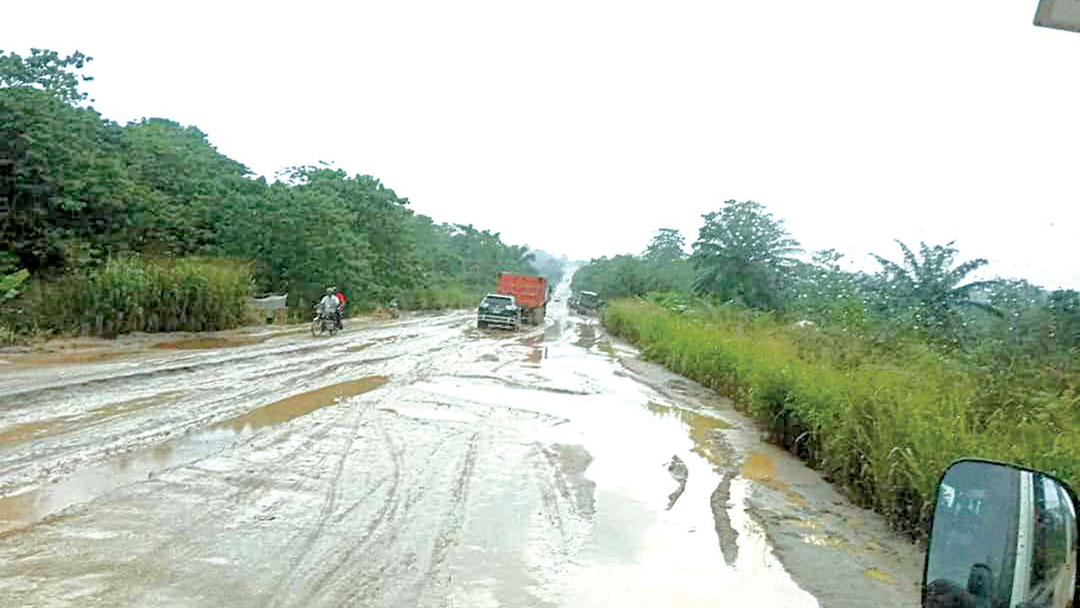The Deputy Governor of Cross River State, Rt. Hon. Peter Odey, Ph.D. has taken some commendable steps to strengthen the All Progressives Congress, APC in Cross River North, acting on behalf of Governor Bassey Otu. His efforts are the vital spark the party has needed, as I noted in a recent article. Odey’s work is breathing new life into the APC’s presence in the senatorial district.
He has once again shown why he’s the party’s most valuable asset in the senatorial district, not merely through the prestige of his office but through his conduct and commitment. While some leaders in the North dismiss others as less important, he’s always the first to reach out to aggrieved members and sustains his engagement, regardless the person’s status to keep them in the fold. When a prominent APC member recently defected to the PDP, Odey went to great lengths, even contacting the smallest intermediaries, to persuade him to stay. Even though it could not the change the politician’s mind but his commitment was undeniable, but he cannot do things alone.
The government and the leaders of the APC in the North need to bring some balance to political offices and development sharing equation to help him maintain the momentum. Currently, the imbalance in the projects and political office patronage among the local governments in the North is one of the issues that if not urgently addressed may explode and undermine the gains of all his efforts. Cross River North comprises five local government areas, LGAs. Even though political appointments and projects have never been evenly distributed, with larger and stronger LGAs getting more, the gap has never been as wide as it’s been in the last ten years.
The administration of former Governor Ben Ayade widened this gap greatly. When voices like mine called for fairness, we were blacklisted rather than heeded. During Ayade’s tenure, I advocated for fair representation across the LGAs, particularly during the APC state congress, arguing that Ogoja which the government had just tried to deny the Senate seat should not be left empty. I feared that, if APC fail to patronize Ogoja, it I’ll become a fertile ground for the opposition to feast on. My agitation was not out of disdain for Yala or doubt in its candidates but a conscious and strategic thought to prevent Ogoja from becoming an opposition stronghold. Mischief makers twisted my stance, but my warnings proved prescient.
Ignored, Ogoja became the opposition’s hub in the North. This marginalization became evident when Ayade sought a Senate seat. When people tried to fight the nomination of Odey as the Deputy governorship candidate, Ayade rightly questioned what he could campaign on in Ogoja without it. My earlier position, which caused me trouble in some quarters, was vindicated during the governorship elections, where APC performed strongly in Ogoja, largely due to the decision to pick a running mate from there. For the Senate, it was too late because the people had made up their minds against Ayade and asked why they should go for one when they can actually have the two.
Like a stubborn child who never learns, the APC seems to be repeating same mistakes. Since assuming office on the 29th of May, 2023, key appointments from the North have disproportionately favoured Yala. For instance, Yala holds three commissioners, while some LGAs have only one. The LGA has the highest number of federal and state appointments. The two last federal commissioners and the only ones to have come from the North went to the LGA. Even the focus on projects mirrors this imbalance.
This opinion is not a call to strip Yala of its gains, as political patronage is fought for, not given. It is a plea for deliberate inclusivity across all LGAs. To achieve this, the party needs the support of Yala’s leaders, who must act as their brothers keepers, as Galatians 6:2 urges, “Bear one another’s burdens, and so fulfill the law of Christ.” In politics, it’s tempting to echo Cain’s defiance in Genesis 4:9, “Am I my brother’s keeper?” Yet, for the party’s unity and progress, Yala’s leaders should embody the love described in 1 John 4:20-21, which teaches that one cannot claim to love God without loving their brothers.
Take Bekwerra, for example. Despite most of its political heavyweights aligning with APC, the opposition consistently wins elections there. The reason is simple; APC has not given Bekwerra’s leaders enough to campaign with. The same applies to Utukalu, the lesser served half of Obudu, which has two political blocs. While one bloc enjoys fair representation, Utukalu is left wanting.
The people of Cross River North are more politically aware than ever and are embracing a “support who supports you” mentality. If elections were held today, Bekwerra and Utukalu would be the battlegrounds. While APC and PDP could perform well in Yala, Ogoja, Obanliku, and Obudu’s Bette bloc, the opposition retains a firm grip in Bekwerra and Utukalu; not out of loyalty to the opposition but because APC has not provided compelling reasons to win their support.
Therefore, as the Deputy Governor continues his mission to endear APC to the North, the APC government should pay attention to Bekwerra and Utukalu. Without deliberate efforts to ensure government presence is felt in these areas, the party’s recent gains may be undone, like water poured into a leaky basket. Fairness in appointments and projects across all LGAs is not just a necessity but key to sustaining the party in the North.
Inyali Peter, Ph.D.
Disclaimer: The opinion expressed in this article is strictly that of the author, Inyali Peter, and does not represent TheLumineNews, its agent or the organization the author works for.
